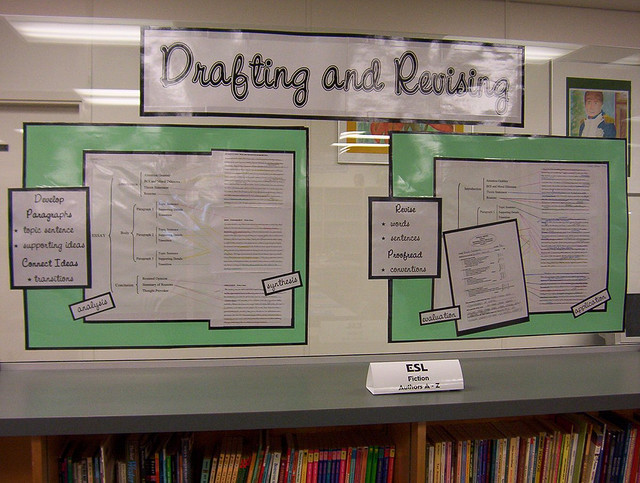The Workshop Is About Process: Teaching Revision Part 9
This is a continuation of my posts on teaching revision, specifically this one, this one, and this one. If you’d like to contribute a guest post or response, please contact me at m [dot] salesses [at gmail etc.].
In my last post I wrote about how “Revision Notes” helped me teach craft as cultural, since it allowed the workshop to get a better sense of the individual context for the decisions the author was making in her workshop story. To continue from there, I want to go back to the way revision is taught and to academic writing and to the comment a colleague made that she thought revision could be taught but not writing.
I often wonder whether the normative creative writing workshop is too focused on the finished product, and too focused on the finished product because of the place of a finished product in the university. Most courses study finished products–published books, distributed films, etc. They study these products from the perspective (or from many different perspectives) of how to read a finished text. The one advantage workshop really has for the student of creative writing is the ability to study process and to see process in action. Yet for some reason that’s not always the case in workshops.
The Iowa model workshop, as I’ve written about elsewhere, basically relies on a bunch of writers imagining what the finished version of a story would look like and talking about the difference between the draft they read and that imagined endpoint. Depending on the workshop model, students get more or less help with imagining that finished version of the story, get more or less guidance from the author. But it’s rarer for an author to talk through what she’s going through in her process (in workshop), especially to discuss the kind of “off-the-page” things we all know go into writing: what the author’s life has been like, what else has been on her mind, what shows she is watching, how her relationship is going, etc., all of which informs the piece in some way. It’s rare too for the author to get to talk about her conception of how fiction works–when she is being workshopped–though it’s common or even foundational for other students to talk about their conceptions of how fiction works while ostensibly offering critique. Is this because we are taught to talk about the text from a position where the author’s work is done and the discussion centers on the readers? How does one switch the focus?
Revision is basically about process. So to teach revision (which is to teach writing) is to teach process. It’s to teach the examination/self-examination of writing in process and the process of improving that writing toward an in-process goal. As we know: while an author revises, her conception of what she is revising often changes. In the middle of a long revision process the author probably has a different idea of what her piece is than she does at the end–if she writes anything like I do.
What this means to me is that even if the class does a good job of empathetically imagining what the finished story might look like (and even if this includes discussing it with the author)–then the eventual finished story is, at an essential level, a different conception of the story than the author or class could imagine by looking at the work in progress. That’s another way Writing/Revision Notes can help–they can tell the class where the piece is so far, what the context is of a certain draft in a progression of drafts.
One of the ways I’m trying to address that is through getting the workshop to ask more questions. I also think a couple of other strategies can help. I’ll continue by talking about them in the next post.

